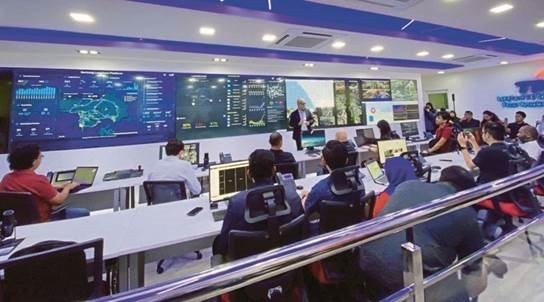
LETTERS: Many parts of our daily lives, as well as the way our economy and society are organised and function, are being transformed by digitalisation.
The scope and speed with which the digital transition is bringing about change is astounding, and it raises a host of public policy challenges. It's also altering the nature of policymaking itself, thanks to the advent of a new set of instruments to aid policy formation and implementation.
Whether by enabling remote working, automating processes, or facilitating contactless transactions, digital technology have played a critical part in keeping civilization operating during the Covid-19 pandemic.
As a result of the rising use of digital technologies has pushed society closer to the creation of a smart economy, which promises new methods for firms to grow and become more productive. The government is taking substantial steps to assist digital transformation, including giving financial and tax incentives.
According to the planned Budget for 2022, tax incentives will be offered for activities under the Digital Ecosystem Acceleration Scheme (DESAC). The proposal is extremely beneficial to the national digital ecosystem.
The DESAC focused on two types of providers: (1) digital technology providers (DTP) and (2) digital infrastructure providers (DIP).
For up to ten years, a new company under the DTP is subject to an income tax rate of 0 to 10 per cent; for up to ten years, an existing firm under the DTP that diversifies into new service activities and sectors is subject to a 10 per cent income tax rate.
Meanwhile, DIP offers a total investment tax credit of 100 percent on capital expenditures that can be offset against up to 100 percent of statutory income for a period of up to ten years. The DESAC will be effective for the application received by MIDA from October 20, 2021 until December 31, 2025.
The tax incentive to promote the digital ecosystem is in line with the "Wawasan Kemakmuran Bersama 2030 (WKB 2030)" plan, which aims to achieve a fair and equitable economic development for all levels of society by 2030.
The digital economy is one of the WKB 2030's Key Economic Growth Activities, and Malaysia aspires to be at the forefront of its development. The tax incentive arrives on time, especially during the Covid 19 pandemic. Many businesses are suffering financially due to the epidemic.
These businesses have little choice but to shift their focus to digital channels or execute a larger pivot to a digital business strategy to prevent catastrophic revenue losses.
Source: https://www.nst.com.my/opinion/letters/2021/11/742449/promoting-digital-ecosystem-through-tax-incentives

